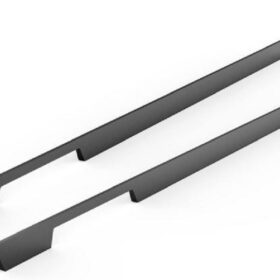How Aluminum Alloy Handles Support Sustainability
Aluminum alloy, a versatile and lightweight material, plays a pivotal role in bolstering sustainability across various industries. Its unique properties, such as durability, corrosion resistance, and recyclability, make it an ideal choice for applications that prioritize environmental friendliness and resource conservation. This article explores the multifaceted ways in which aluminum alloy handles support sustainability.
Lightweight and Durable: Reducing Carbon Footprint
Aluminum alloy is exceptionally lightweight, which significantly reduces the weight of vehicles, aircraft, and construction materials. This lightweight nature translates to lower fuel consumption and emissions, as lighter vehicles require less energy to propel. Moreover, aluminum alloy’s high strength-to-weight ratio ensures durability, enhancing the longevity of products and reducing the need for frequent replacements.
Corrosion Resistance: Minimizing Environmental Impact
Aluminum alloy exhibits excellent corrosion resistance, making it ideal for applications exposed to harsh environments. Without the need for additional protective coatings or frequent maintenance, aluminum alloy products reduce the release of hazardous chemicals into the environment. Furthermore, its corrosion resistance extends the lifespan of infrastructure and buildings, minimizing the need for costly repairs and replacements.
Infinitely Recyclable: Conserving Natural Resources
Aluminum alloy is infinitely recyclable, meaning it can be repeatedly melted and reformed without losing its inherent properties. This remarkable attribute contributes to the conservation of natural resources by reducing the need for raw aluminum extraction. Recycling aluminum alloy saves up to 95% of the energy required to produce it from primary sources, significantly reducing greenhouse gas emissions and preserving valuable mineral reserves.
Energy Efficiency: Reducing Greenhouse Gas Emissions
The production of aluminum alloy is less energy-intensive compared to other metals. The use of recycled aluminum further reduces energy consumption, as it requires less energy to remelt than produce new aluminum. By promoting energy efficiency, aluminum alloy handles contribute to the reduction of greenhouse gas emissions and mitigate the impacts of climate change.
Conclusion
Aluminum alloy handles play an indispensable role in supporting sustainability. Its lightweight nature, corrosion resistance, infinite recyclability, and energy efficiency make it an ideal material for applications that prioritize environmental preservation and resource conservation. As industries seek to adopt more sustainable practices, aluminum alloy will continue to be a valuable ally in the pursuit of a greener future.
-
2024-11-29Top Trends in Modern Kitchen Cabinet Pulls for 2024
-
2024-11-28The Ultimate Guide to Modern Kitchen Cabinet Pulls- Materials, Styles, and Tips
-
2024-11-27Elevate Your Kitchen Design with These Must-Have Modern Cabinet Pulls
-
2024-11-26Sleek and Stylish- The Best Modern Kitchen Cabinet Pulls for a Contemporary Look










